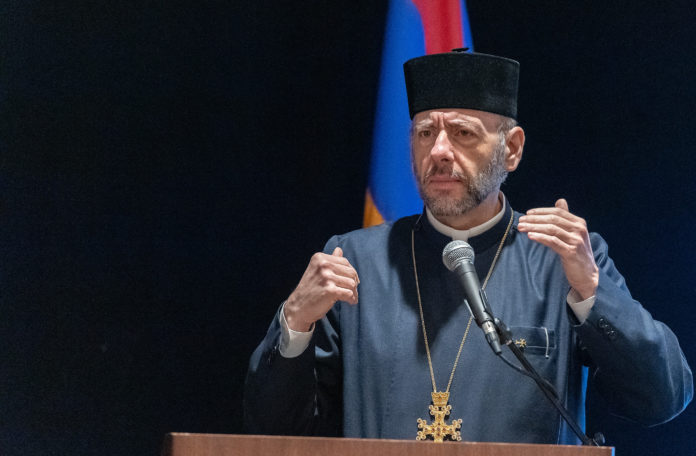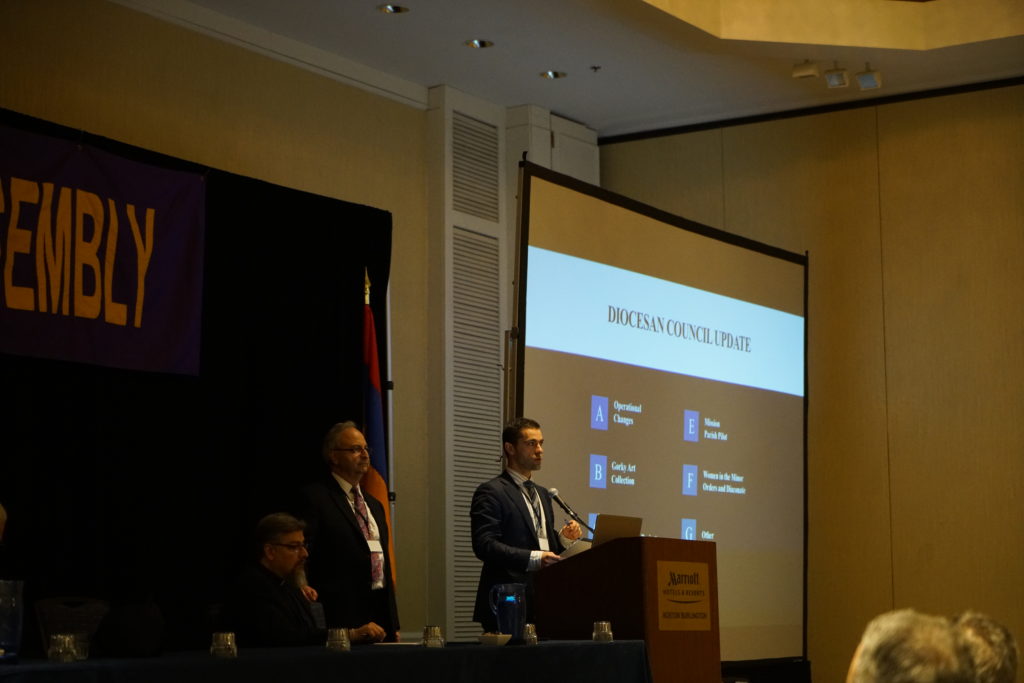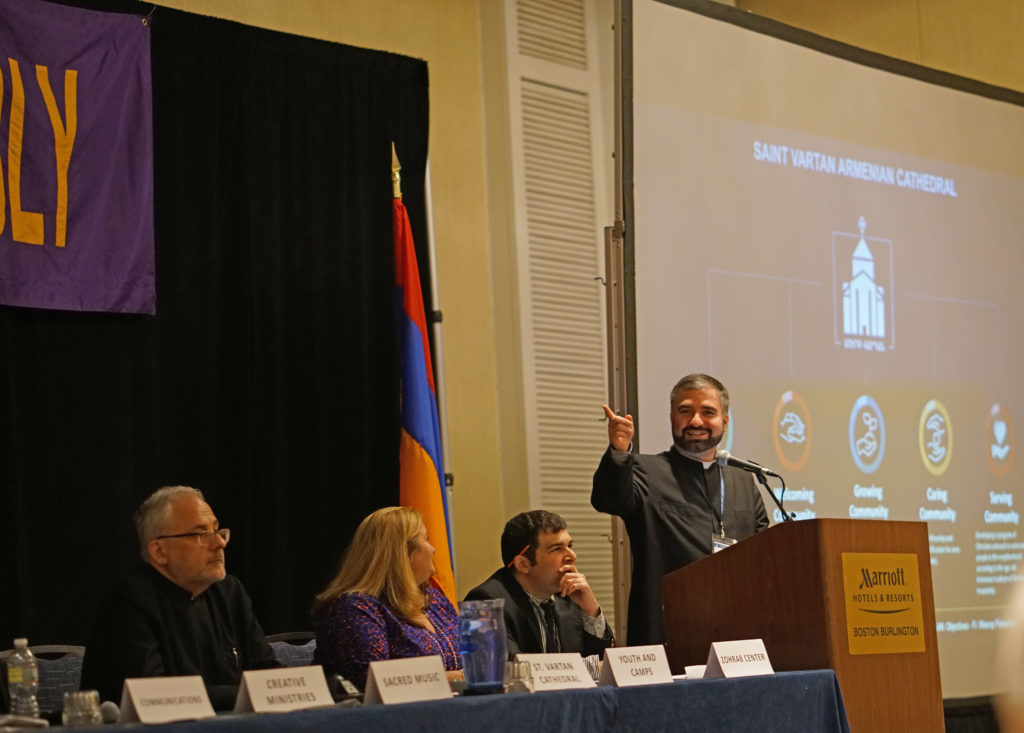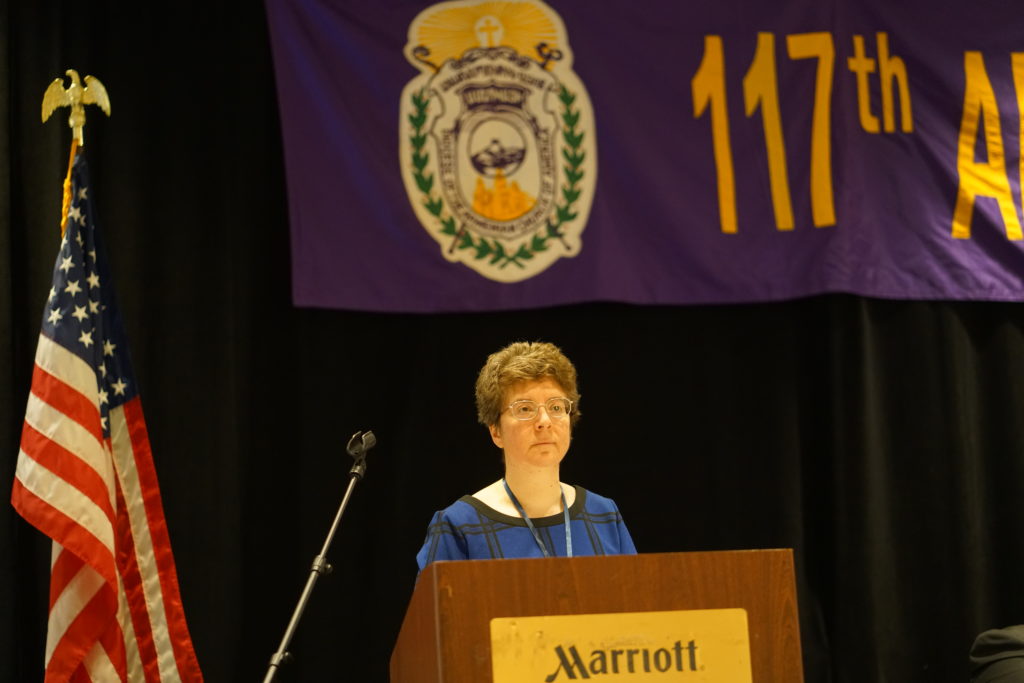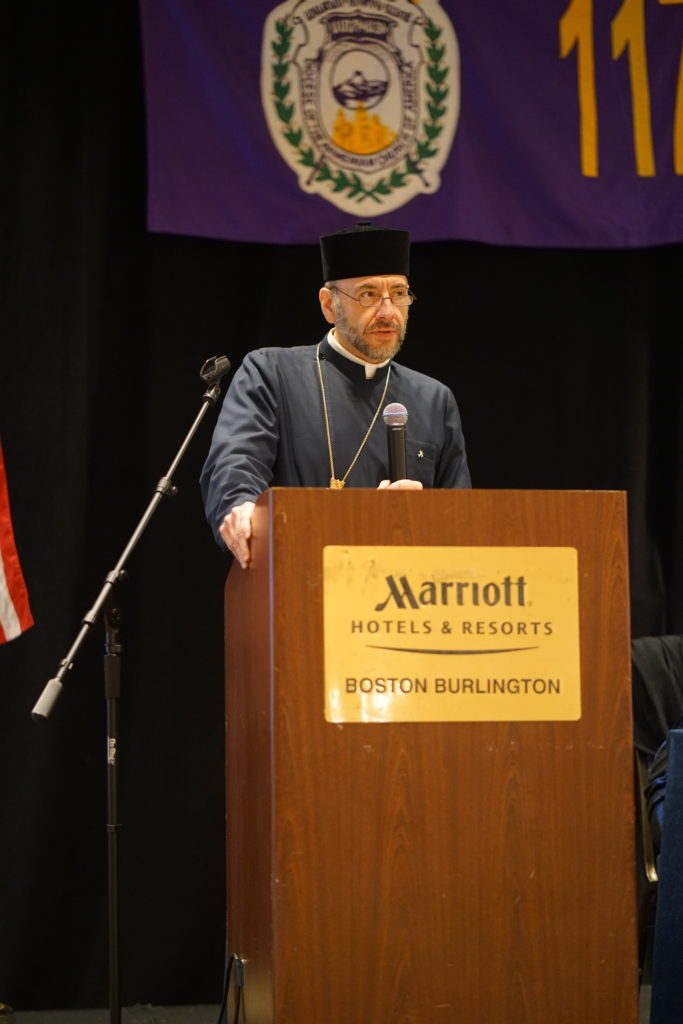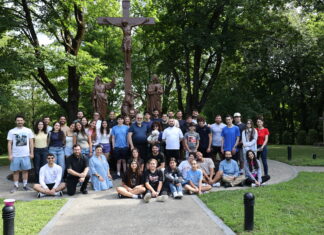BURLINGTON, Mass. — The 117th Assembly of the Diocese of the Armenian Church of America (Eastern) was hosted by St. James Armenian Church of Watertown, with the general sessions on May 2-4 at the Boston Marriott at Burlington. There were 148 registered delegates.
In many ways, the highlight of the Diocesan Assembly was the keynote speech of Primate Fr. Daniel Findikyan on May 3 in which he laid out his new approach for the Eastern Diocese and all its connecting bodies, which he called “Building Up the Body of Christ.”
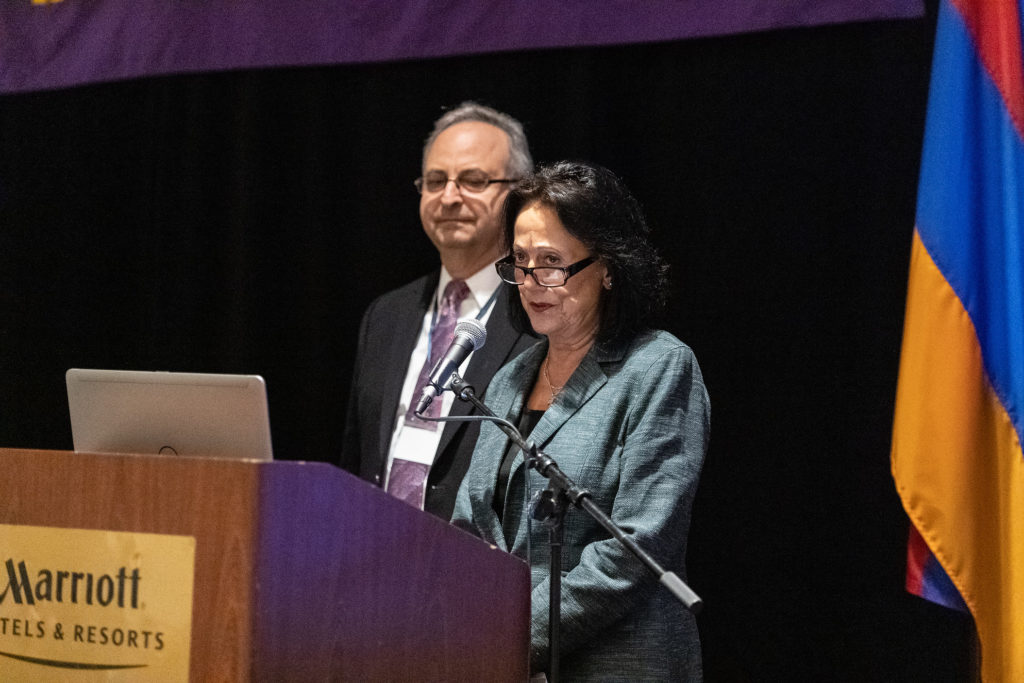
The Primate’s Vision
Findikyan began by reviewing his first year in office (for background see this 2018 interview), declaring: “During this past year, it has been a time for me of discovery, a time for learning. Learning is always a humbling enterprise and that process continues. But it has also been a time for me to connect with the entirety of this great Diocese, to connect with our parishes, our pastors and clergy, and all of our people. It has been so heartening. It has been so uplifting.” He exclaimed that for the most part, his job this year has been fun. He praised the clergy of the Eastern Diocese as “the very finest, the most well trained, most dedicated clergy in the entire Armenian Church” and gave various examples of their work.
Findikyan found that three phrases written by St. Paul in Ephesians (4:11 to 16), encapsulate for him the vision and some of the goals that he thought the Diocese should follow: the unity of the faith and the knowledge of the Son of God; equipping the saints for the work of ministry; and knitting together the body in love.
Findikyan decried what he saw as an attempt by the Diocese “to become all things for all Armenians — all things for all people: a kind of a marketplace for all things Armenian.” Though this might be motivated by the well-intentioned hope that people would come for various activities and then become engaged directly in the spiritual life of the church, he questioned whether this was diluting “our specifically God-given Christian mission.”



